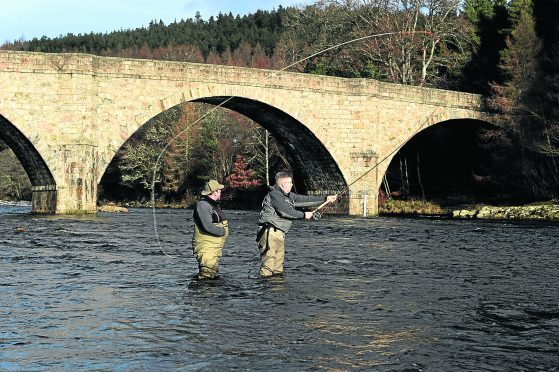Serious concerns have been raised about the huge loss of young salmon in the River Dee.
New research indicates that 48% of juvenile fish, known as smolts, died on their way to sea. And river managers are worried that harbour dredging operations at Aberdeen may be a contributing factor.
However, the harbour board maintains the link is “improbable and purely speculative.”
The findings have emerged after mounting evidence suggesting that large numbers of young salmon in the river are being killed by a growing population of non-native predatory birds.
Further studies are to be instigated on goosander ducks and the scale of their impact on the salmon population.
Dee river director Lorraine Hawkins said: “There’s already deep concern about dramatic declines of one of Scotland’s most iconic species.
“Our research on predation in the Dee could help explain similar losses of young salmon from rivers around the country.
“Further research at sea is being launched to try to explain fully why salmon are failing to return to their home river, but there are several possible explanations.
“It’s never been more important that we get answers and take urgent action to conserve a precious species that has been declining so rapidly.”
The harbour responded in a statement: “One of the principal responsibilities for any harbour authority is to maintain its depth of water, through dredging operations, and to ensure the safe passage of vessels.
“This has been an activity that has been carried out, relatively unchanged, in Aberdeen harbour for hundreds of years and is an activity licensed by Marine Scotland.
“Historically, no study has suggested any link between harbour operations and salmon numbers, and the results from the first two years of this study – of which we are a funder and an active participant – have shown zero smolt mortality within the harbour section of the River Dee.
“For it to be surmised that harbour operations have suddenly become a contributing factor to the loss of smolts is both improbable and purely speculative.”
The research findings were issued as the 2019 salmon fishing season got underway.
